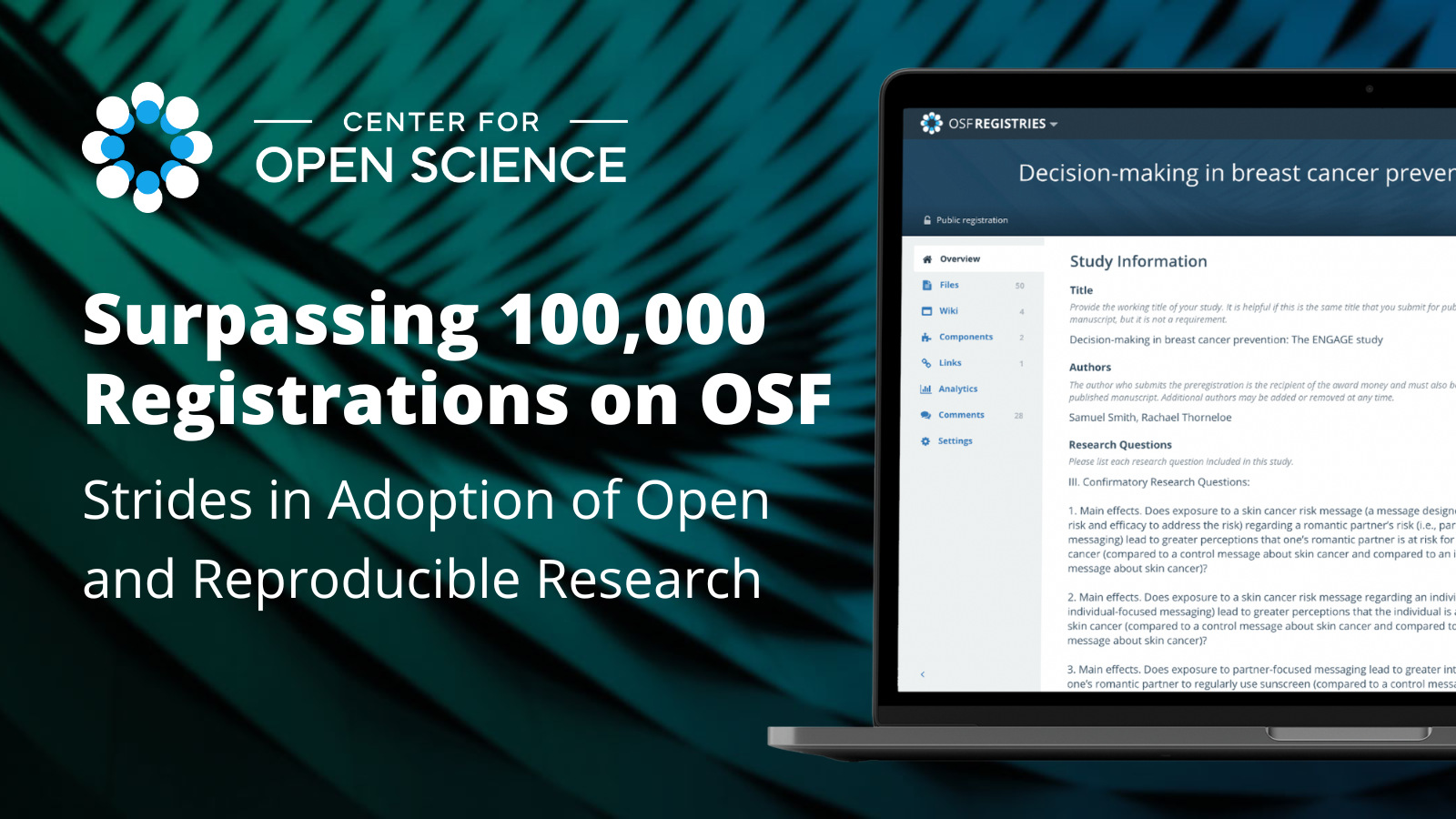
The growth in the global open science research community shows no signs of slowing down. Examples of openness and improved rigor are everywhere. One example of that growth is the rise of registrations on the Open Science Framework (OSF) – time-stamped, archived, read-only versions of a study plan – that enable researchers to register according to their discipline, study design, or stage in research. By registering a research plan, researchers can increase transparency and improve the quality of research through better planning and by drawing clearer distinctions between confirmed findings and unexpected discoveries.
Users on OSF have produced over 100,000 registrations, demonstrating significant shifts toward adoption of open and reproducible research. In just a short time, registration submissions through OSF have grown significantly. The increase in registrations is a testament to a growing community of researchers committed to improving the integrity and rigor of research practices.
Registrations can be used to preregister a hypothesis and analysis plan, or keep a snapshot of work before peer review. The goal is to increase transparency and reduce unethical research behaviors. Registering your research can be as simple as answering a few questions about your research plan.

Since its initial release, the registration workflow has evolved to address community needs while balancing open science best practices. For example, registrations are updatable to reflect unanticipated barriers typically encountered when conducting research. In partnership with Internet Archive, OSF registrations are preserved as a digital collection of registration files and metadata (explore the OSF Registrations preserved on Internet Archive). To ensure persistence of each registration, a Digital Object Identifier (DOI) is assigned to each registration with metadata and sent to Datacite. OSF supports a variety of preregistration workflows and use cases, providing a range of templates for various disciplines and study designs. We are actively engaging with communities to expand available templates and welcome any involvement from the community.

This open science community milestone indicates that norms are continuing to shift towards open and reproducible research practices. With researchers adding new registrations to OSF every day, we look forward to supporting the research community in growing the number of registrations in the future. Anyone can search existing registrations or create and aggregate their own research materials through OSF Registries, a scholarly repository designed to facilitate transparency and rigor in research.
Learn more about registering your research and start discovering registrations in your field.

6218 Georgia Avenue NW, Suite #1, Unit 3189
Washington, DC 20011
Email: contact@cos.io

Unless otherwise noted, this site is licensed under a Creative Commons Attribution 4.0 International (CC BY 4.0) License.
Responsible stewards of your support
COS has earned top recognition from Charity Navigator and Candid (formerly GuideStar) for our financial transparency and accountability to our mission. COS and the OSF were also awarded SOC2 accreditation in 2023 after an independent assessment of our security and procedures by the American Institute of CPAs (AICPA).
We invite all of our sponsors, partners, and members of the community to learn more about how our organization operates, our impact, our financial performance, and our nonprofit status.